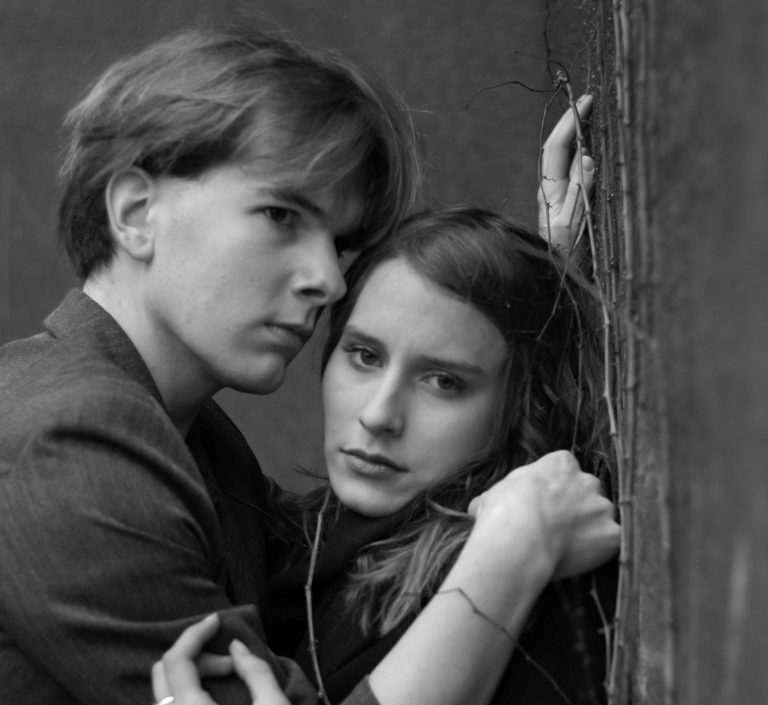
10 Things People Don’t Realize You’re Doing Because You Had To Parent Yourself
People often say that you are mature for your age, that they can’t believe you are as young as you are with the way you carry yourself.
People often say that you are mature for your age, that they can’t believe you are as young as you are with the way you carry yourself. You look around at everyone else in your age group and find it hard to relate to a lot of them. While others have the freedom to slowly adapt to adulthood with their parents’ support, you felt the opposite. As soon as you were able to, you were in the adult world working to support yourself and find your way through life without anyone to depend on.
If you can relate to this, welcome to the club of self-parented misfits. We were our own support systems, we learned life lessons the hard way, and we are stronger now because of those years we struggled. We didn’t have our parents to fall back on when times were tough, so we learned how to do it alone. The truth is that the way we operate is different from people who grew up with the full support and acceptance from their families. Sometimes little habits and character traits don’t translate to others, and we may not even realize that we are even doing anything differently from them. These are some of the things we do that we may not realize, thanks to the fact that we had to parent ourselves.
1. You sometimes struggle to empathize with those you view as more privileged
Your childhood was not picture perfect, so sometimes what another person considers a struggle is something you wouldn’t make a big deal about. They might complain about things that seem like small potatoes compared to what you’ve been dealt, which makes it hard for you to truly feel sorry for their situation. You see them as somewhat privileged and cannot relate to them, just like they may not really relate to you.
2. You don’t ask for help
You have adapted to a “do it yourself” attitude because you were the one who always handled your messes even from a young age. You struggle to ask anyone for help, even when you might need it, because you cling to your independence so strongly. It is easier to handle problems on your own than try to add anyone else into the mix.
3. You keep most of your problems to yourself
You didn’t have anyone to truly and openly confide in for most of your life. Now as an adult, you have a tendency to bottle up your issues and keep them hidden. You are so accustomed to dealing with pain in silence, so it is no wonder you keep to yourself. It’s hard to open up when your past showed you nothing else but judgement or indifference any time you let yourself be vulnerable. You also don’t like to feel like you are complaining because you would never make yourself a burden on anyone else.
4. You don’t trust majority of people around you
Your childhood and young adult life taught you some hard lessons about trust. Those lessons made you realize that there is security in skepticism. You learned how to trust yourself more than anyone else, so it can be hard to give that same trust to others. You know that you have your own back, but you don’t make the naive assumption that other people will treat you with the same respect.
5. You feel threatened when anyone tries to mess with your independence
You don’t take kindly to anyone bulldozing into your life and trying to change your comfort zones. This can sometimes come across as commitment avoidant in relationships. Your best sense of security comes from your independent way of life, and you don’t like loosening your grip on that. Allowing yourself to rely on someone else and open up your world to some type of partnership can send off hundreds of warning sirens in your mind. You feel safest when you only have to trust yourself and allow yourself the freedom to live life on your own accord. Sharing that space with someone else can feel a bit suffocating, especially at the start.
6. You make sure you work hard and don’t accept handouts
You would rather work yourself to the bone than allow anyone the chance to say, “You wouldn’t have that if it weren’t for me!” Your accomplishments are based on your own determination, and you make sure you take care of yourself so you never have to wait for anyone else to. When people offer an easy way out in exchange for reliance on them, you easily say, “no thanks,” and find a way to make things work on your own two feet.
7. Your anxiety spikes in a chaotic home environment
Have you ever tried to have a conversation in a loud room and immediately gotten frustrated because the chaos makes it hard to focus? When you have worked so hard to get yourself out of chaos, it can be hard to have any tolerance for disarray in your adult household. You might start feeling anxious or short tempered when there is no sense of order in a home. You have built a stabilized environment from the ashes of your messy upbringing, so it’s no wonder you want to avoid anything that brings back sour memories.
8. You are usually pretty hard on yourself
When you grow up feeling like no one is proud of you for being yourself, it can be easy to develop a critical inner voice. You might be very hard on yourself and show little compassion for your own shortcomings. You expect a lot from yourself, and when you fall short of your own standards, you can go right back to your childhood feelings of not being good enough. Ambition is a great thing, but it has to be balanced and free of the judgmental vibes you found at home as a child.
9. You have an easier time connecting with people who are older than you
Especially in your early twenties, many people your age are starting to take gradual leaps towards independence while also enjoying their youth. While some are taking their time to grow up, you feel like you are several steps ahead already. You’ve been on your own for much longer, even at a young age. It makes sense then that you would have an easier time connecting with people slightly out of your age group. Your priorities are not always going to match up with your peers because your journey to adulthood started much earlier than theirs. You didn’t get the chance to take it easy and enjoy those carefree years in your parents’ care because you needed to grow up faster than you wanted to. People who are a bit older and already established are the people who you like to spend time with.
10. You are really sensitive to rejection
Rejection. It’s a sore subject for those of us who were left out in the cold by the people we were supposed to be able to trust the most. As an adult, we can take even the smallest of rejections very personally. It easily brings back that same sting we felt when we realized we had to have our own backs and parent ourselves through life. Despite our fierce independence, deep down we want to feel loved and accepted just like anyone else. That is especially true because we were deprived of those feelings during some of the most fundamental times of our lives.
Old wounds can stick with you and sometimes make you react with hurt before reason, and that’s why it is so important to have confidence in yourself. You’ve made it this far in life because you’ve done a damn good job of guiding yourself through whatever lessons you needed to learn, and whatever mistakes you needed to make. Give yourself some credit for where you are at now. Surely, it took a lot of strength to get here and turn your life into something you are proud of despite the obstacles you had to overcome.











